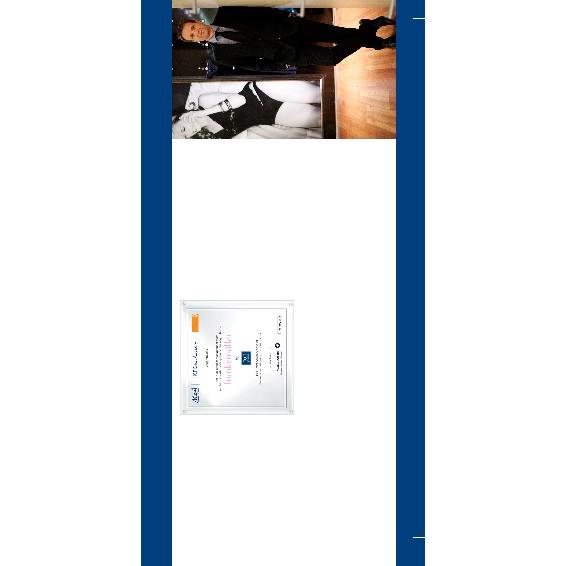
Hunkemöller
Ron Hemmer
The former private equity owners made Hunkemöller a much
stronger company. Now, after a secondary buy-out, Hunkemöller
is ready to grow much bigger and become the number 1 lingerie
specialist in Europe.
As CFO of lingerie specialist Hunkemöller for ten years, Ron
Hemmer has seen his share of ownership changes. He joined
Hunkemöller in 2001, shortly after the retail chains Vendex,
then its parent company, and KBB merged. He remembers the
delisting in 2004 of Vendex-KBB from the Amsterdam stock
exchange when a private equity consortium headed by KKR
took the company private. He experienced the subsequent
transformation into Maxeda with its internal reshufflings. And
when in February of 2010 Maxeda announced a "strategic
reorientation" for its fashion group, of which Hunkemöller was
part, Hemmer roughly knew what lay ahead. "When you are
bought by private equity, you know for sure that one day you
will be sold again."
Not a clinical process
To underline how much interest Maxeda's announcement
generated among potential buyers, Hemmer always prefers
to speak of how Hunkemöller was bought rather than how it
was sold. By the way he tells the story, you could be fooled
intothinkingthatprivateequityfirmPAIPartnersacquiredHun-
kemöller in an entirely smooth, almost clinically run, process.
"After Maxeda's announcement we started with the vendor due
diligence and gave the presentations to banks that arranged
thestapledfinancepackage.Afterthatateaserwassentto
manypotentialbuyers,afirstselectionofbidderswasmade
to whom we gave a series of management presentations.
Thenyoufurthernarrowdownthefieldandmonthsofnego-
tiationsfollow.Traditionallythefinalnegotiationsareheldina
weekend, and then when late on a Sunday night white smoke
emerges, you know who the new owners are. Such a process
typically takes twelve months to complete, and we did it in ex-
actly that amount of time."
But whereas the yearlong sale may have been without any un-
expected twists and turns, sudden stops or dramatic setbacks,
for Hemmer personally it has been quite an extraordinary year.
"If you don't know who you will be working for, your future sud-
denly becomes a little uncertain. Are we going to be part of
a listed multinational, a family-owned business or private equity
again? Are the new owners maybe Russian or Chinese? Do they
want to replace me as CFO and parachute in a nephew who just
completed a course in accounting? When you are in the dark
about this for so long, it's only natural that it gets on your nerves a
bit. It was, however, a very exciting year that I mostly enjoyed and
where we, at times, also had great fun."
A palette full of dilemmas
Looking back on that period, Hemmer describes it as a palette
full of dilemmas. "How do you divide your time between running
the operation and being involved in the sale? How do you bal-
ance the company's interests with your own personal ones? How
can you serve both the old and the new owners? How can you
remain transparent and trustworthy to your colleagues, while so
manythingsyouareworkingonrequireconfidentiality?Allthis
you need to manage while you're working non-stop and incredibly
hard and where you have no control whatsoever over your own
agenda."
Apart from the fact that it is legally required of any company di-
rectortoputtheinterestsofhisorhercompanyfirst,Hemmer
says that, above all, it is a moral obligation as well. "After all the
only reason I had got into this position is that I work for this com-
pany. In the end you realize that it comes down to old-fashioned
qualities like loyalty, integrity, being reasonable and using your
commonsensetohandlealltheconflictingdemands.Tofindthat
there was room for this, in a transaction where the stakes were
so high, was really pleasant and signifies to me how well and
respectfully this process has been managed."
Tough and smart
So, although they never had to negotiate with a knife between
their teeth, that doesn't mean the management team was not
| | | | | | | | | | | | | | |
| | | | | | | | | | | | | | |
| | | | | | | | | | | | | | |
32
33

